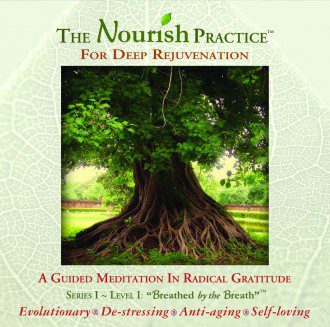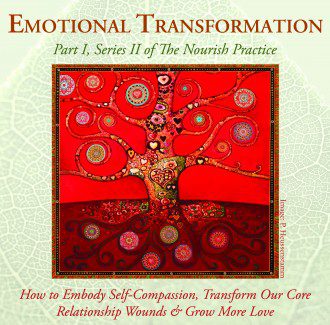Contributing Writer for Wake Up World
Many take offense to advice when they don’t ask for it, including suggestions. Unsolicited advice can feel intrusive. It can threaten our personal space and privacy. There are also different degrees of criticism and advice, and the tone of delivery has lots to do with how well we can hear it. So does the nature of our relationship with the person from whom we receive it.
Criticism is another level of “advice,” which often comes with more punch and can push our buttons. However, I also invite us to consider criticism in a positive light, and if we don’t like its delivery, perhaps we can at least hear the core information — the helpful message — in the criticism. We also can ask for our needs — asking that criticism be delivered in a way that we’re better able to receive.
Style of delivery aside — be it angry, frustrated, insistent, blunt, etc. — let’s focus on the content of criticism.
First, when we get advice we often infer (it is not necessarily implied, meaning the rub is in the way that we think about it and emotionally react) that we are wrong, that our way of being is flawed, or even bad. This can be especially difficult if we have significant unresolved shame, meaning we judge and feel bad about our core sense of self.
Those of us interested in bettering ourselves appreciate criticism, and try to find something constructive in it. We might even try to sort through a difficult delivery of it because we want to learn and grow. Sometimes we might not like what we hear in criticism because it might be true, and this truth might cause us to see something we don’t like about ourselves or have to change somehow. The truth in criticism might also cause us to feel remorse, sadness, fear, or helpless; most are uncomfortable feeling these feelings and stave them off, thereby shooting down criticism or advice mid-air before it even makes it to our ears. Doing this can close us off to others and our own growth.
Third, we might associate criticism with childhood, when we were judged harshly or overly controlled. We then react to the present moment from a wounded place, that likely has little to do with what is currently happening. It’s reasonable not to want to be treated as we were when we were children. It’s even more reasonable, perhaps, to use critical awareness to recognize when we are having a knee-jerk childhood reaction, so that while it might seem we are being treated as children, it’s more honest to admit that we are reacting as a child. We can choose to see the current situation as adults and to respond from a more empowered and realistic sensibility.
Fourth, criticism is often associated with the shame and guilt of religion. We might feel the pain of how our parents or others wielded religious doctrines and used them as a way to violate our integrity. Some use religion to inflict condemnation and angry judgments. Yet the same religious precepts also can instill forgiveness, compassion, and wisdom. So, religion may not be to blame as much as the same core emotional wounds that cause some humans to wield religious doctrine as a sword of violence rather than as a compass for compassion.
Reactions
A complaint I often hear from adults, especially in intimate relationships, is that one partner feels as though they are being treated like a child. Let’s say that a couple, Jake and Anna, have an agreement to alternate days taking out the trash. Anna grew up with strict parents who would get on her case if she didn’t keep up with her childhood duties. Let’s say Anna forgets to take out the trash one evening and Jake reminds her to do so, in a neutral, matter-of-fact tone of voice.
Upon hearing this reminder, Anna hears it as criticism and retorts, “I don’t like being treated like a child.” Jake is a bit bewildered and says that he was only reminding Anna of their agreement. This is reasonable adult behavior on Jake’s part. Yet, Anna seems to react strongly to what is offered by Jake as a helpful reminder, and nothing more. Ironically, Anna might be the one who is treating Jake like a child if she is reacting from a childhood place, as a knee-jerk reaction to when her parents got upset with her for not completing chores, or in other ways Anna perceived she was “wrong” or “bad.”
What might be more humbly responsible and adult of Anna is to say, “I don’t like how I react from a childish place when part of me understands that you are only reminding of me of what I agreed to.” It would also be adult of Anna to recognize this childhood part of herself and work with it to heal.
If Anna were to look a little deeper, to her astonishment, she might even discover that she subconsciously reacts from a childhood wound to illicit a response from her partner … so she can then blame him for treating her like a child, effectively acting out on Jake what she did not get to express to her parents. By reacting from a childhood wound, Anna in effect makes Jake the parent. This is how Anna’s childhood self tries to effect healing the past. This is a healthy impulse, but it’s not healthy if it remains unconscious, so the issue gets projected onto her partner and creates a rift in the relationship.
Without dialoguing and engaging with this wounded part of herself, the reactivity does not change. It takes humble awareness, introspection, and an emotional knowledge of one’s past to recognize that one is projecting issues and displacing emotion. It also requires restraint, courage and motivation to prevent from projecting and acting out onto our partner. We can pat ourselves on the back when we are able to manage these domains. We also can be gently remorseful of ourselves when we flounder, regroup and encourage ourselves to do better. We also can enlist the help of our partner to remind us when they notice us acting out.
Often, our child self so badly wants to blame someone else for past hurt it just can’t hold back from doing so in the present. “If only I can let him know how I feel and put an end to it I could cure this ache in my heart,” the little child in Anna might say to herself. Yes, that aspect of herself can be healed and managed, but ironically, again, not by projecting the issue onto her partner. We do not heal much this way, except perhaps for if it helps us get in touch with that voice in ourselves. Ironically, we often create more strife and drama in relationship this way because we can’t heal what is unconsciously projected no matter how much we take up the issue with our partner. This is to displace childhood emotions into the present and project the past onto our current partner. We have to work through its source in the past inside us in a slow and patient process.
Healing our hurt inner child can happen by dialoguing with and feeling our inner perpetrator, be it our father or mother, uncle or sibling. Anna might interpret Jake to be condescending and judgmental, and even angry, towards her. But this does not mean he feels this way, nor does it mean Jake is treating her like a child.
Feeling treated like a child is often our unhealed child-self reacting to a similar dynamic that reminds and triggers us in the way the way that we were treated once ago.
Venting to one’s partner might feel good in the moment, but the deeper ache persists until we can contact the feelings and address the issue with the people— symbolically represented inside us as an aspect of us — with whom we had the original injury. With this said, in the present moment we can request that we be communicated with in a way that feels good to us. Anna could ask that Jake communicate in a calmer tone, engage in eye contact, speak extra kindly, and preface his communication with Anna so that she can perhaps take a deep breath and steady herself in her adult sensibility so as not to react, or to catch her reactivity and modulate it. Sometimes, however, the delivery can never be good enough, or timely, for one who ultimately doesn’t want to hear. Jake can also offer an invitation to Anna rather than a command. If he is feeling generous, he might even muster the resolve to take out the trash himself, without a fuss and as an act of selfless compassion. This act would be a gift to the relationship and might encourage Anna to change by gentle and means and get insight to her triggers.
We see, then, that we often defend against criticism for emotional reasons. Realizing this, it might be time to look inside ourselves for the old wound. For, if we did not like or find useful a piece of advice or criticism on a purely logical level, we would simply say so without emotional fanfare, and even thank the advice-giver. When we react emotionally we often miss the content of the advice or request itself, which can be a lost opportunity. That advice might have something we need to hear. Maybe it’s something that could change our life, create an opportunity, or help us heal our past. It might even improve our relationship!
What You Think of Me … Might Be My Business
This discussion brings to mind the popular adage, “What you think of me is none of my business,” which might very well be one of the best ways to prop up our defensive ego and perpetuate our blind spots. Indeed, this statement unilaterally accuses others of projection — their ideas and disowned parts coming to us in the form of how we should change, or what is wrong with us. But, it may not always be a projection!
What someone else thinks of us might very well be our business. Or, even if it is a projection, it can still be an accurate account of what we need to take a look at. Only we can know, and in our humility determine so or not. We are encouraged to be humble because what we deny in ourselves precludes our own growth, health, and enjoyment of our relationships. This is why it’s a good practice to hear things with as neutral a mind as possible, especially when being asked questions.
Again, only we know whether something is true for us, and the only way to find out is to be able to hear the input neutrally and honestly consider it, both by feeling into it (an aspect of our intuition) and being as intellectually honest as we can about it — not by shooting it down before it even reaches the airspace of our heart and mind.
If we don’t trust the person who offers us advice, we also can be honest about our mistrust, instead of shooting down or arguing the advice itself. We can say, “I could appreciate your advice more if I trusted it was for my own good, or if I trusted your sincerity. Since I don’t, I am sorry, I don’t want to hear what you have to say at this moment. Maybe later I’ll see and feel differently about it.” This is honest and often cuts to the chase and saves a lot of time battling ideas of right and wrong, if the deeper truth is that we don’t trust the person or the circumstance of the delivery.
Of course, we still might want to self-check ourselves and make sure that we are not simply allowing our ego to defend against hearing the content of the advice itself. After all, we can come to “not trust” anyone who doesn’t agree with us or who has constructive advice, especially if difficult to hear. This is merely narcissism and arrogance. Our defensive ego has an infinite number of ways to justify itself and protect even the dysfunctional aspects of ourselves! So, to play devil’s advocate to our defensive ego, we should try to hear the content of what someone has to say. If we can’t hear it, then it’s worthwhile to investigate why not, honestly.
Our healthy ego appropriately protects our sense of self from malicious attack, violence, and other harm. In the end, we have only our self-honesty to rely upon. We don’t have to believe or hear anything we don’t want to. But if we want a better life and better relationships, it’s more helpful to honestly and responsibly self-reflect and discover what is true for us. With practice, we can learn to trust both our feelings and our discernments about what is true, even if we don’t like what we find. If we are earnest about our growth, we will work to distinguish our healthy versus our unhealthy ego. If we are more interested in remaining the same and “safe,” even though it brings the same problems day after day, relationship after relationship, we likely won’t put in the effort.
Distinguishing what aspect of our ego is at work in cases of receiving criticism is an art and requires practice and learning from our mistakes and successes. It requires both our good thinking skills to not misinterpret what is being said, to remind ourselves to breathe and to pause before responding (“in the gap between stimulus and response is our freedom”) as well as our emotional honesty and self-reflection to admit, if only to ourselves, what is really true, what’s really going on inside us. To get to the heart of this truth, we can look beneath our immediate defenses and into our sense of self-worth and issues with shame. If we have been criticized unfairly in the past or shamed to feel bad about ourselves, as many of us have, it might be hard not to feel shame and worthlessness in the face of criticism or advice. To fend off feeling this shame resurface, we might find ourselves in a knee-jerk reaction to shoot down advice. Careful inquiry, however, can reveal to us whether we are indeed being shamed or if advice is merely triggering our backlogged shame.
The more integrated and healthy our sense of self, replete with a good sense of how our functional and entitled egos operate and kick into action, the more able we are to hear criticism, without it meaning (read: our interpretation of it) that we are inherently bad and worthless. In other words, if we have shame issues from the past, we often will defend strongly against criticism and even helpful suggestions if it triggers our old shame issues and makes us feel unimportant, worthless, and hopeless. When criticism or advice can touches deep wounds in us that our current situation mirrors, sitting with any intense feelings and impulses, as well as using our good thinking to gently tease apart past and present, can eventually help us gain clarity and feel less overwhelmed.
If we suffer from shame, until we have a more integrated and solid sense of self, in the face of advice or criticism we might feel helplessly reactive and a need to protect ourselves (from our own judgment). To defend ourselves consciously like this can be a healthy form of denial, while we develop the capacity to be more vulnerable. If we want a deeper cure, so that we can both better ourselves and share more intimacy with others, we can work on releasing our pain, sadness, and anger from harbored shame. Psychotherapy, journaling, and self-help books can help in this way, as can this series of recordings I recently created.
On The Flip Side
If we are in relationship with someone who can’t take criticism or suggestions, such as Anna in the previous example, compassion (not pity) for them is the higher path. We can try to understand them, why they act this way, respect their fear of vulnerability, and surmise that they are likely doing the best they can. If we can’t figure out what is going on with them, we might loosely assume that some woundedness is at play, and respond with compassion while asking for our own needs. People like Anna can feel like they will die if they feel shame and are somehow flawed, even though they might logically be able to admit that no one is perfect and “we all have issues.” Yet, this is to confuse literal with metaphorical (psychological) death, and a fear of the latter can be so scary as to stave it off at all costs, replete with every defense mechanism ever known.
On the other hand, if we are meanly, condescendingly, and ruthlessly criticized on a regular basis — if we are violently shamed — we can protect ourselves. We don’t need to expose ourselves to such violence. But I recommend that we make sure that this is the case and that we are not unconsciously reacting from past wounds. Many call others “toxic” when in fact the name-caller might be the one experiencing his own difficult or so-called “toxic” feelings. Talking about the issue with our partner, while maintaining rigorous self-honesty, helps both parties and the relationship grow.
On the flip side, one who dishes out criticism or advice can help the situation by checking his motives. If you are the one offering criticism, or merely asking that an adult agreement be upheld (such as Jake was in the previous example), I recommend doing it in as kind and non-threatening way as possible, if indeed you are really trying to help. If you are not, then you might want to think twice about offering it. It might be more honest, and create less resistance in your partner to be transparent about your motives. You might be giving advice in the name of “helpfulness” and wanting good for the other, but what you really want is the person to change for you, or to help allay your fears. If this is the case, it’s best to be honest with yourself from the get-go, so that you can be more honest with your partner, which often allows for a more genuine, less defensive, harmonious interaction.
Our partners usually pick up on our selfish desires couched in advice anyway, so it’s not like we are getting away with something. I find it helpful in relationship to vulnerably express my concern or fear before questioning my partner’s motives or asking them to consider looking at their actions. For example, if I am uncomfortable with my partner being distant, I might express my fear and discomfort before asking them about it or making them wrong. Instead of criticizing them or acting aggressively, which can be defensive, I might say, “I want to be close to you and I’m feeling lonely and wanting connection. You seem distant; do you notice this? Are you open for connection, and if not, can we talk about?”
Confessing our self-serving desire (no judgment here, just descriptive fact) in our request can help diffuse our ego and our partner’s defensiveness. As another example, consider the classic kitchen clean-up conundrum. Instead of blaming, I can make “I” statements, expressing my feelings, preference, and request: “I am more comfortable in a clean space and I feel anxious in messy spaces. I’d feel more at ease and more respected if you cleaned up after yourself in the kitchen. Would you mind helping me out in that way?” Or, instead of saying, “Honey, leaving the light on wastes energy; you keep leaving it on,” you might want to say, “Honey, leaving the light on it wastes energy. I’m uncomfortable paying for it and it increases pollution, which concern me. Would you help me out and turn off the light when you leave the room?”
These examples make the issue about you and others, and not all about your partner. They represent taking responsibility for your perceptions, preferences, and needs. They convey direct, vulnerably expressed, and practical reasons for your request, advice, or criticism. They also model vulnerability and honesty, which are likely less threatening to your partner, which can support and encourage them to be equally so. Similarly, Jake could preface his request of Anna to take out the trash by saying, “I am feeling mild frustration and uncomfortable that you have not taken out the trash; would you mind doing so?”
Again, for some our advice, suggestions, or criticisms will never be couched in just the right words, in just the right tone of voice, and at just the right time. You can try to meet their needs these ways, but for some it will never be right. Such people usually just don’t want to hear it, and can’t hear it. In the end, there isn’t anything you can do to get them to hear you, and the more you try the less they will hear you. In the name of humility, compassion, and decency, all we can do in such cases is retreat and take care of your own needs and consequences in situations where your needs aren’t being met, and find peace the best way you can.
In Sum
Welcoming criticism, and even unsolicited advice, depends on our desire to better ourselves, to be compassionate towards others, as well as our emotional resiliency to hear it. It requires that our defensive ego step down. Of course, much advice, especially criticism, comes as a projection from the other person, as they criticize in us what they don’t like in themselves. But if we just shoot down all feedback that comes our way as projection, we can defend against hearing what might be shared for our good, and the good of our relationship. Indeed we must be careful not to project our own defensiveness onto the one offering us advice. It’s therefore best to try to hear the content of what is offered to us as much as we can and not assume the other has it out for us, especially if we have historical issues with criticism and feeling controlled.
With this said, much criticism and advice comes with emotional charge and unconscious selfish motive from the other, and this can be difficult to receive. In such cases, it can be best to step back to try to hear the message and information while shaking off the delivery. We also can ask for the advice to be offered as neutrally as possible, without charge, attack, irritable tone, judgment, and as kindly as possible. This is where the advice-giver can help the interaction and honestly self-reflect and clean up the delivery and intent of their offering, such as by confessing their self-interest in giving the advice, if only as a gift to the other and the relationship. The advice-giver can recognize any emotional charge they have, such as their fears, and confront these honestly in themselves. When I have a question or criticism of my partner, I find it refreshing and lovingly disarming to share my fear or concern behind my inquiry first. All these possibilities can be openly discussed between two mature and caring people, which can lead to diffusing the tension that often develops with criticism.
Of course, you are welcome to hear or to reject any of this advice and express your positive or negative criticisms below. 🙂
The Nourish Practice
Jack Adam Weber’s “The Nourish Practice” is an easy, guided meditation-Qi Gong practice in radical gratitude and self-love. It is an Earth-based, body-centered practice — at once physiological and mythological — that is deeply relaxing and replenishing, especially for modern-day burn-out syndrome, and requires little physical effort. “The Nourish Practice” resets your nervous system and fosters a rich inner life.
You can purchase The Nourish Practice as a CD or Digital Download here.
PLUS: The first installment in Jack Adam Weber’s new “Emotional Transformation” series, entitled “Healing from Heartbreak”, isavailable now!
Previous articles by Jack Adam Weber:
- The Modern Shaman: Fierce Love at the Frontier of Madness
- Pilgrimage: Stepping Into the Blessed Unknown
- Arrogance in Relationships: How to Deal With and Heal It
- 11 Reasons Why Hippies (Not Psychos) Should Rule the World
- The Monsanto Years: Singer Neil Young Rips Into GMOs, Big Biz and Conformity
- ReVOLUTION: When Enough is Enough
- Sex – Truth and Dare, Pleasure and Purpose
- Relationships: The Costs of Staying When We Should Leave
- Emotional Work
- Yin Yang — Ancient Wisdom for Personal and Planetary Transformation
- Heartbreak – Loving Ourselves Through Difficult Times
About the author:
 Jack Adam Weber, L.Ac. is a Chinese medicine physician, author, celebrated poet, organic farmer, and activist for body-centered spirituality. He is also the creator of The Nourish Practice, an Earth-based rejuvenation meditation. Weber is available by phone for medical consultations and life-coaching.
Jack Adam Weber, L.Ac. is a Chinese medicine physician, author, celebrated poet, organic farmer, and activist for body-centered spirituality. He is also the creator of The Nourish Practice, an Earth-based rejuvenation meditation. Weber is available by phone for medical consultations and life-coaching.
You can connect with Jack at:
- Website: JackAdamWeber.com
- Facebook: Facebook.com/JackAdamWeber
- Twitter: Twitter.com/JackAdamWeber
- Email: [email protected]

If you've ever found value in our articles, we'd greatly appreciate your support by purchasing Mindful Meditation Techniques for Kids - A Practical Guide for Adults to Empower Kids with the Gift of Inner Peace and Resilience for Life.
In the spirit of mindfulness, we encourage you to choose the paperback version. Delve into its pages away from screen glare and notifications, allowing yourself to fully immerse in the transformative practices within. The physical book enriches the learning process and serves as a tangible commitment to mindfulness, easily shared among family and friends.
Over the past few years, Wake Up World has faced significant online censorship, impacting our financial ability to stay online. Instead of soliciting donations, we're exploring win-win solutions with our readers to remain financially viable. Moving into book publishing, we hope to secure ongoing funds to continue our mission. With over 8,500 articles published in the past 13 years, we are committed to keeping our content free and accessible to everyone, without resorting to a paywall.










